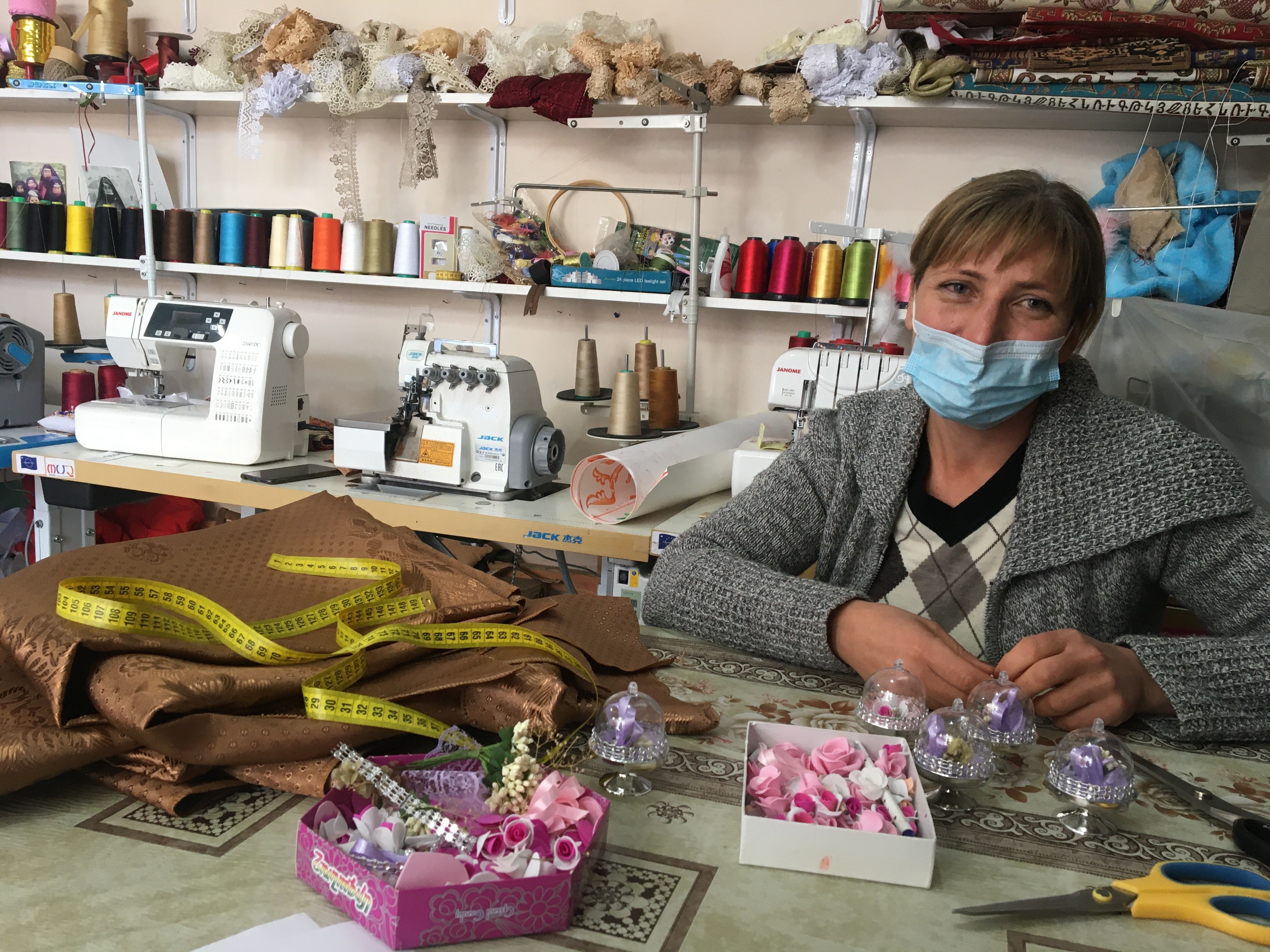Strengthening Stability and Resilience of the Bordering Communities in Vayots Dzor, Gegharkunik and Syunik Regions (Phase 3)
What we do
For Armenia the compound crises impacted large segments of affected population in bordering regions, suffering the consequences in their everyday lives, which brings an urgent need of strengthening the safety, stability and resilience of the bordering communities. The affected communities experience various forms of deprivations, safety risks, poverty, limited job opportunities, depopulation and deteriorating human capital, gender inequalities, vulnerability of youth and children, and hindered access to basic public services and social protection. All this has been exacerbated by COVID-19, undermining the stability and resilience of the bordering communities in the long run.
UNDP-UNICEF joint “Strengthening Stability and Resilience of the Bordering Communities in Vayots Dzor, Gegharkunik and Syunik Regions” project (Phase 3) funded by the UK Conflict Stability and Security Fund (CSSF) is called to make people feel safer and more engaged in community life, to enhance access to inclusive public services, to give people a credible economic stake in a future without violence, and to strengthen the bonds between communities, their governments and their businesses, thus contributing to long-lasting stability at the border.
Objectives
By focusing at national and local levels (top-down and bottom-up), the project aims to empower national and local actors to bring forward sustainable solutions that enhance resilience at all levels to the range of internal and external threats in the field of:
Ø Skills Development and Productive Employment
Ø Disaster Risk Management
Ø Improved Social Services for the most vulnerable segments of population across three target bordering regions of the project.
The project has strong gender lenses and assures extended opportunities for women and girls to participate at all schemes provided by the project interventions on the ground which contributes to the wider access and better opportunities for women and girls in the field of improved livelihoods, gender-sensitive and informed DRM, as well as enhanced quality of social protection and social services.
Some results so far
Within a short period of time the project (3rd phase) capitalizing on the key findings of the 2nd phase (January-March, 2021) performed a wide range of activities displaying a comprehensive approach aimed at building community resilience and addressing the 3 key building blocks of inclusive and sustainable development through direct engagement of CSOs and establishment of strong partnerships with concerned national and local stakeholders.
In the field of Skills Development and Productive Employment, the project has applied Active Labour Market Policy Instruments aimed at reskilling and upskilling of unemployed people through 3-month on job-training for 133 direct beneficiaries out of whom 70 percent are unemployed women, as well as first-time job seekers/newly graduates, mostly young women, which will enable them to acquire skills and knowledge demanded by employers in the regions. Hence, the project contributed to an increased employability of women and men in the regions and increased opportunities for them to generate income and become more competitive in the labour market with the prospects for the most promising ones to remain with an employer for the next 6 months or to find another job based on the accumulated working experience.
The project has also addressed issues of online vocational education and training (VET) at the policy level as well as capacitated 480 TVET faculty on data visualization of the learning materials, including IT skills. The project’s support, therefore consolidated into enhanced capacities of the VET faculty in the field of online education, which will further contribute to the enhanced quality of the competency-based VET education.
At the higher level, the project contributes towards development of human resources responsive to the needs of labour market in the regions and, thus, to the enhanced economic resilience of the target communities.
The project responded to the government’s post-conflict mitigation policies by supporting government’s efforts on social and economic reintegration of women and men, youth and displaced persons affected by the conflict. Specifically, the project supported the government to introduce Pilot Model entitled “Socio-economic reintegration of marginalized groups with the focus on ex-combatants and young unemployed women” through career guidance and professional orientation tools and techniques for integration of the most vulnerable groups of population into labor market. The main objective of the Pilot Model is to support the socio-economic integration of ex-combatants involved in hostilities, including those with disabilities as well as young jobseekers to develop necessary employability skills, to discover job and entrepreneurship opportunities, as well as to increase their overall employability and accesses to decent jobs.
During the 3rd phase, the project addressed Disaster Risk Management (DRM) at community, school and kindergarten levels. The project capacitated about 30 pre-selected NGOs in the field of DRM with incorporation of gender-focused separate sessions for 64 participants from the target regions of the project. Grounds for practical interventions to further support gender-sensitive disaster management mechanisms are prepared. It is expected that enhanced capacities of the training participants from active regional CSOs as well as local administrations will mainstream community-based efforts to build disaster resilience at local level. The project has started formulation of the community DRM plans for Chambarak, Areni, Zaritap, Kajaran and Meghri communities, as well as development of DRM plans for 10 kindergartens.
In the field of social protection and social services risk-informed standards, procedures and mechanisms to be developed and introduced in the communities to strengthen community-based social support services for families and children have been discussed and agreed with the RA Ministry of Labour and Social Affairs. Secondary legislation regulating the certification, quality standards, monitoring, costing and outsourcing of community-based services will be developed by a group of experts.

 Locations
Locations